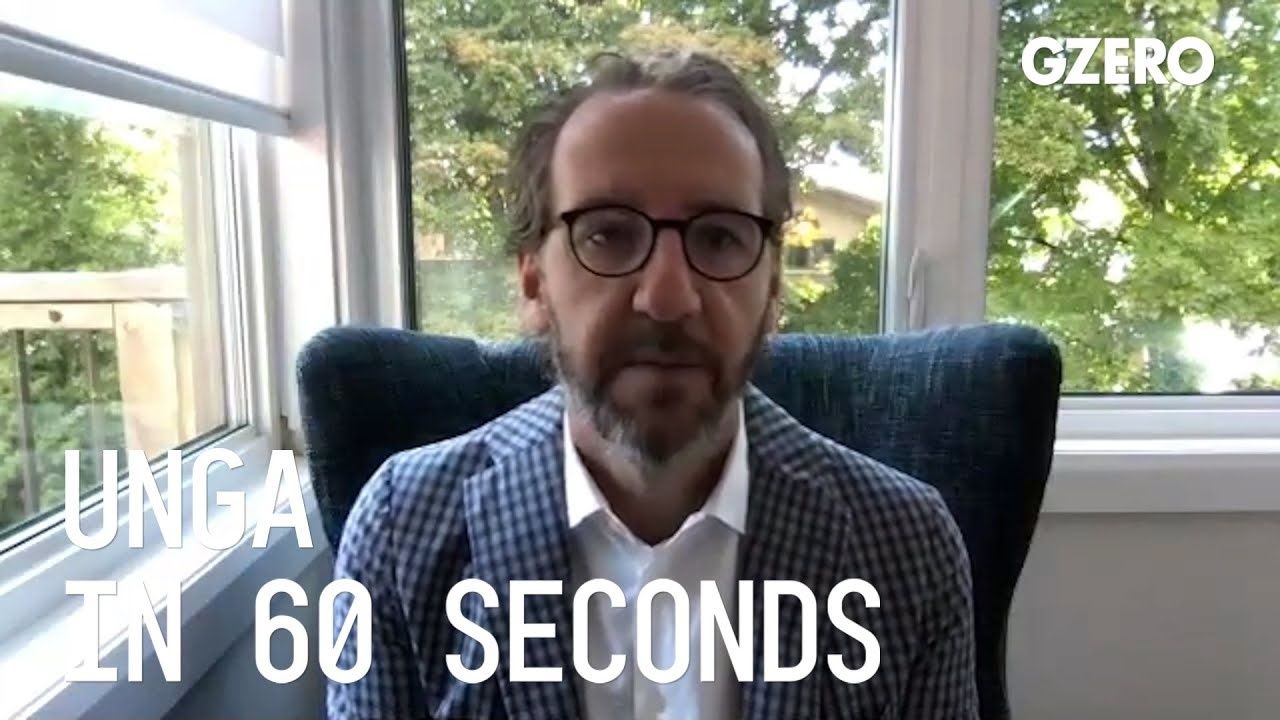UN General Assembly
Why you should be (skeptically) optimistic about climate change

Why You Should Be (Skeptically) Optimistic About Climate Change | UNGA in:60 | GZERO Media

Gerald Butts, Vice Chairman & Senior Advisor of Eurasia Group, discusses reasons the rapid global response to climate change warrants optimism on UNGA In 60 Seconds.
There's a lot of doom and gloom out there about climate change. Can you give me a reason to be optimistic?
I'm going to say something you don't hear set very often when it comes to climate change. You should be an optimist. You should be a skeptical optimist, but an optimist nonetheless. Let me explain what I mean. We are scaling up climate solutions faster than even the most ardent among us thought possible a decade ago. Consider this. In 2010, about half of US electricity was generated from coal. This year less than 20% will be, and it's trending towards zero at increasing velocity.
Yesterday, just yesterday, Xi Jinping announced at UNGA that China's emissions will peak this decade, and he set an economy-wide net zero target for the middle of the century. And this afternoon, yes, just this afternoon before recording this segment, California Governor Gavin Newsome said the state will outlaw the internal combustion engine by 2035. All of this is happening against the backdrop of the European Green Deal, making a truly historic investment in clean growth, and a presidential nominee running on a climate plan that would have been unthinkable one election cycle ago. And that's just the politics. On the market side, ESG investing is more than holding its own against traditional vehicles, and the cost of renewable energy is truly competitive with thermal fossil, almost everywhere in the world, about a decade sooner than conventional wisdom, expected it to be. In short, things are changing, and fast.
But more than any of these trends, I'm optimistic because the demographics are finally on the side of climate action. Countries, global institutions, and firms are increasingly being led by a generation of people who will live through the harsh reality of the climate change era. They've seen the future, and they don't like it. None of this is to say the change is going to be easy or that it's going to happen automatically. These big changes that I've been talking about... They need to get bigger, and they need to happen faster, but there's too much doom-saying out there about climate change. There is hope, you should be skeptical, and you should always, always read the fine print, but there's lots of reasons to be hopeful. I'm Gerald Butts, and this has been UNGA in 60 Seconds.
Indian Prime Minister Narendra Modi and Canadian Prime Minister Mark Carney struck a series of deals during a meeting in New Delhi on Monday, including a 10-year nuclear energy deal under which Canada will provide India with uranium.
The US and Israel have launched a series of strikes against Iran at a moment when the Islamic Regime is at its weakest. Ian Bremmer spoke with Iran expert Karim Sadjadpour in Munich earlier this month to understand the choices the regime and population are facing.
With US forces building up in the Middle East, Trump is betting military pressure will force Iran to bend. Will this turn into a full-scale conflict?
Are we still talking. #PUPPETREGIME